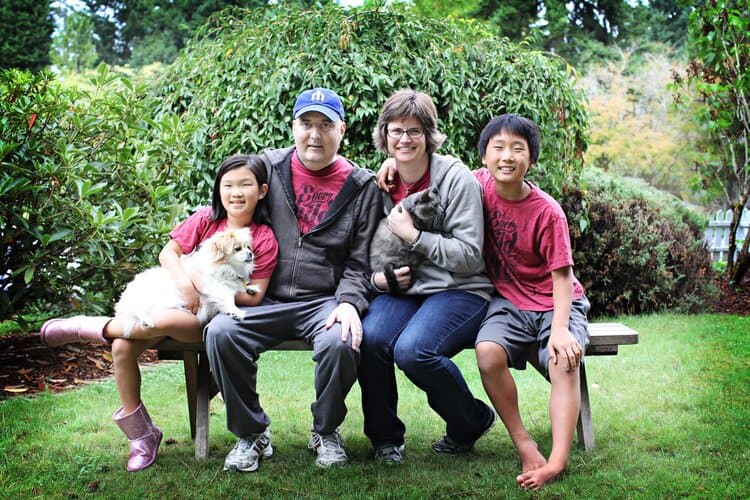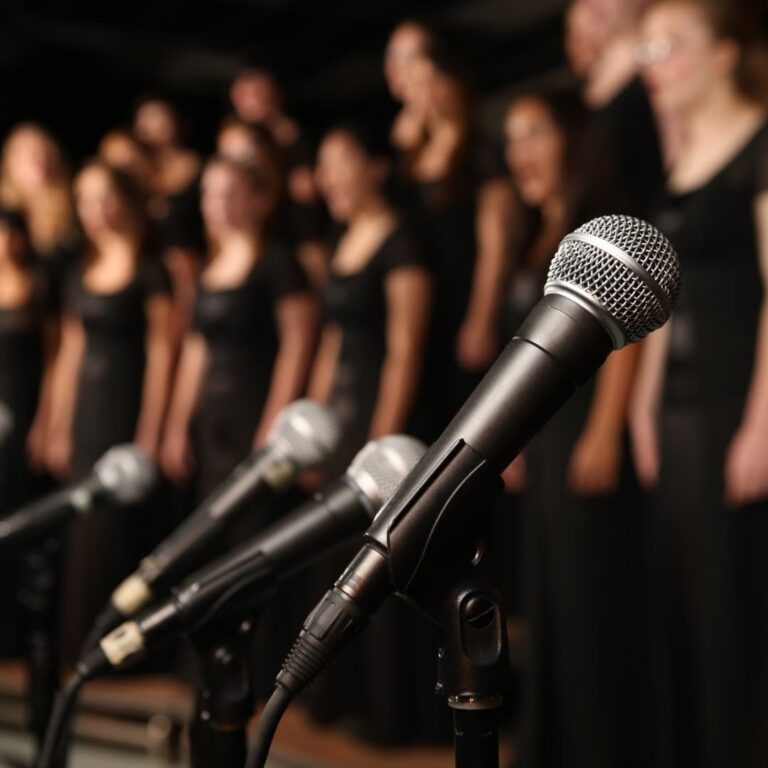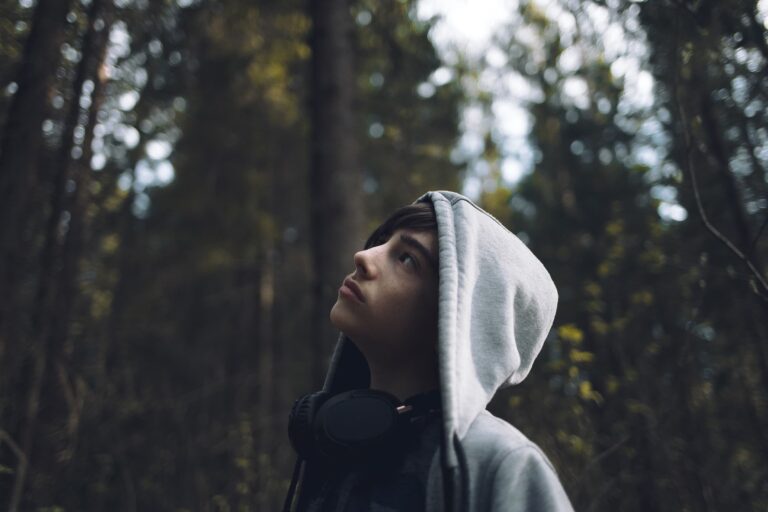Supporting Grieving Children and Navigating Solo Parenting with Jenny Lisk
In this captivating episode, I welcome Jenny Lisk, an award-winning author and widowed mom, to share her inspiring journey and the invaluable insights she gained along the way.
Jenny’s dedication to supporting widowed parents and increasing their family’s well-being shines through her book, Future Widow, and her podcast, The Widowed Parent Podcast.
Prepare to be moved as Jenny opens up about her late husband’s illness, the shocking diagnosis, and the challenging months that followed. Through Melissa’s thoughtful questions, we uncover Jenny’s motivations behind writing her book and starting her podcast, as well as the profound “aha” moments she experienced during her interviews with numerous guests.
Jenny’s husband died of Glioblastoma. She shares her widow story as well as her thoughts on:
- Anticipatory grief
- What she wish she would have known as a solo-parent
- Grief and its effect on kids
Listen in to gain a deeper understanding of the importance of honesty with children and the significance of building a foundation of trust in the face of grief and loss.
Listen to the Full Episode
Links + Resources From This Episode
- Jenny’s website: jennylisk.com
- Dougy Center – provides support and training locally, nationally, and internationally to individuals and organizations seeking to assist children who are grieving
- Motherless Daughters & The AfterGrief: Finding Your Way Along the Long Arc of Loss – books by Hope Edelmen
- Eluna Network – supporting children and families impacted by grief
Episode Transcript
Melissa: On today’s episode of The Widow Squad Podcast, we’re chatting with Jenny Lisk.
Jenny is an award winning author and widowed mom who is dedicated to helping widowed parents increase their family’s well being. Her book, Future Widow, and her show, The Widowed Parent Podcast, bring much needed resources to widowed parents, helping them feel less lost and alone.
Welcome to the show, Jenny.
I’m really glad you’re here.
Jenny: Hey. Thanks, Melissa. It’s so great to see you again.
Melissa: Yeah, you too.
Well, let’s get started. If you wouldn’t mind sharing a little bit about your widowed story.
The Journey of a Widowed Parent: From Grief to Empowerment
Jenny: So seven years ago right now, Dennis died, and it was coming up on eight years ago that he got sick, and it was Glioblastoma, which is a very aggressive form of brain cancer. I know that your co-host here, Kim, her husband had the same thing. It’s just I had never heard of Glioblastoma at all before he got sick. It was the weirdest thing. He was totally fine. We had a normal life. We had a nine year old. Well, actually, they were eight and they were ten when he got sick. They were nine and eleven when he died because everybody had birthdays.
He was just feeling a little dizzy. I mean, it feels like one of those minor symptoms. Like, I don’t know, I have a stomachache today and it’s gone tomorrow or something. I mean, it’s just like a thing. Maybe he didn’t drink enough water, I don’t know.
Anyway, then he started getting confused, and I just started noticing these subtle signs, but infrequently enough that I was second guessing myself. Did I imagine that he just said something weird, like, am I overthinking the situation here?
We ended up going into primary care about ten days later after this initial I’m feeling a little dizzy thing, and primary care said, let’s do an MRI. Meanwhile, I, of course, had been googling. He had started taking this medication for a urinary blockage, and one of the rare side effects was cognitive confusion. So I was convinced this is just going to be ha ha, he’s saying crazy things and let’s switch the medicine and everything will be fine. Well, the doctor says, let’s do an MRI and then the MRI technician tells us to go back upstairs because the doctor wants to see you. The doctor says you’re going to the neurosurgeon tomorrow. He tells us I don’t want to scare you, but there’s something really wrong with your brain. I think you need to know. It might be Glioblastoma. I’m like, what’s that? Right?
Anyway, we see the neurosurgeon. The neurosurgeon says, we’re doing surgery the following day. That started it. He was sick for eight months. I could go on and on about all the ups and downs and the surgeries and the complications and the stresses and the hospice and the broken rib and the diapers and all the things. Then died and I had a nine year old and eleven year old and I was 43. That’s how this all got started.
Melissa: So your book, were you writing it at the time? What inspired you to write your book, Future Widow?
Jenny: That’s an interesting question.
So no, I wasn’t writing the book at the time, but I did write a Caring Bridge journal. Caring Bridge is basically like an online blog site, and if you have a medical crisis or a death or some kind of urgent medical problem, and your family, friends, supporters kind of want to follow along, you want to give updates to people. Caring Bridge has a wonderful free site where you can create your own kind of blog page quickly and easily and for free. You can share posts and you can lock them down or you cannot lock them down, things like this. My sister actually suggested I start a Caring Bridge, and I was like, no, I’ll just send some text and some email updates. That’ll be fine. Pretty quickly it became obvious that that was not going to be fine, because once I copied and pasted a few texts, I was forgetting it.
So I started writing on Caring Bridge. In the beginning it was very much like factual, like he had surgery and he’s in the ICU and just kind of factual updates. Then as eight months went on, I started getting more and more reflective and sharing more behind the scenes what was going on, more kind of how I was feeling about how things were. Actually, some of that was kind of, um what’s the word? I’m looking for something cathartic, maybe, but therapeutic. It’s also the anticipatory grief thing. Yet another word I hadn’t heard of before I got into all this.
But this idea that because he was terminally ill, I was starting to grieve and starting to process this experience far before he actually died. So as I was driving across the bridge – I live in Seattle so every trip into the hospital meant going across the bridge – perhaps with lots of traffic. I had time in the car to myself as kind of a respite from all the other activities to think about, what do I want to share with my people and then maybe late at night when everybody was asleep, share it. So by the time eight months was over, I had 15,000 words of writing on Caring Bridge that kind of gave a portrait into a young family with a terminally ill parent.
People were telling me, “you should write a book.” I feel like I have the start of something here. 15,000 words documented in real time is the thing, right? There’s got to be something interesting or worthwhile, valuable, helpful to somebody in here. But it doesn’t feel like a book yet. It doesn’t feel like it’s not a whole book. First of all, 15,000 words isn’t enough to make a whole book. By way of comparison, the final book is about 55,000 words. So just to give an idea of, like, 15,000 words is a piece of it. Also, I knew that a book couldn’t be, this happened, this happened, this happened, the end. Just sharing the journal kind of felt like that.
So it took me a while to kind of figure out what converts something like that into an actual memoir, which is an interesting genre, which we could talk all about, too, at some point, if anybody’s interested in that. But yeah, that’s kind of how it gets started. It was important to me too, before I started writing the book, I started my podcast, The Widowed Parent Podcast. I started learning from people I was interviewing.
Lessons Learned: Aha Moments from Widowed Parents
Melissa: Okay, so the podcast came before the book. I didn’t know about that.
Jenny: It did. The podcast is actually over four years since it started. I started during Children’s Grief Awareness Month, which is November in 2018.
I started it because there were two things going on, I had my grief, and then I had my role as a widowed parent of grieving children. Those were kind of two different things because as it’s been said, with three different people in this family now, there are three different experiences of grief, but also two very different ones. I lost a spouse, they lost a parent. I don’t know what it’s like to lose a parent when you’re nine or eleven.
So even though we all lost Dennis, it’s a very different experience, as I’m sure you know, and I’m sure your listeners know. I thought to myself I’ve got some great books, I’ve got a great therapist, I’m going to Camp Widow, I’m doing stuff. I’m like, okay, this is hard. I see a path, I see that there are resources. But for my role as a widow parent, I was like, wait, what am I supposed to do? That’s when I was like, all right, I gotta figure this out. I can’t be the only widowed parent who’s wondering this and worried about this. So I started the podcast, started interviewing people. then with all that I learned through that and the kicking around the idea of, well, what makes a book? How does this become a memoir? I’ve learned so much. Now what if I weave that back in? Like, here’s some of the stuff I wish I had known. Maybe I would have done differently when he was ill if I had known X, Y, and Z. Right. That starts to feel like it makes it a book. That’s kind of how those things came together.
Melissa: Okay, so you just mentioned things that you wish that you had known. Can you touch on some “aha” moments maybe you had with certain guests? Because you’ve interviewed hundreds of people on your show. So are there a few things that stick out that you feel would be helpful for people to hear?
Jenny: Yeah, I think maybe one of the most important is how important it is to be honest with kids in general, of course, but in this context about grief and death and loss and the hard topics. I remember when Dennis was sick, it felt like a binary choice. Do I tell them? Do I tell the kids that he’s dying? Or do I not tell the kids that he’s dying?
It doesn’t feel like there’s a way to have it both ways. I felt like, okay, one of these approaches is definitely more helpful or better than the other, but I don’t know which. It feels like the stakes are high and who can tell me which?
When he first got sick, at first we just thought it was a brain tumor, but it was a brain tumor, and we didn’t know the type. Some brain tumors are fixable, some like his or not. Then we found out that it was glioblastoma and it wasn’t fixable. So my friend calls me up. Meanwhile, I had shared on Caring Bridge, to my people following along, okay, tomorrow we’re going to find out the results of the biopsy. So then I get the results. Then share. Okay? It’s Glioblastoma. So now people know, but my kids don’t know. So my friend calls me up and she says, when are you going to tell your kids? I think she could probably tell that I wanted my answer to be, never, or I don’t know, but not now. I can’t handle this. She said, “our kids asked us tonight at dinner. We told them the update and they asked if he was going to die. We didn’t want to lie to them, so we said yes. We don’t know when, but no, the doctors can’t fix it.” She said, “there are probably conversations like this happening at dinner tables all across the school community tonight. Your kids need to hear this from you tonight. You don’t want them to hear about it on the playground tomorrow.” I was like, you’re right. But inside I was thinking no, I can’t handle this right now.
But she was, of course, 100% right. So I did tell them.
One of the guests that I interviewed – her name is Lauren Schneider, and she’s at the grief center in Los Angeles called Our House Grief Support Center. It was early on in my podcast journey. It blew my mind. She said how important it is to be honest with kids, because of how important the bond of trust is between the kids and the surviving parent. This is the really interesting part, both for its own sake, your kids need to be able to trust you. Also because it actually becomes the basis for them to be able to develop trusting relationships with other important people in their lives – their future friends, future partners, future colleagues, future close whatevers, close people. They’re going to want to have a trusting relationship in whatever context. If that bond of trust with that surviving parent has become ruptured because the parent has lied to them, even if the parent is thinking they’re protecting them. It’s a very common thing. Somebody might die by suicide, and the kids are told that they died of something else, like a heart attack that seems less, well, stigmatized or traumatic or understandable or something.
All the grief experts will tell you that it’s really important that the parent not make up a cover story like that. What is essentially lying because you’re not telling them the truth of what happened, eventually, the kids will find out. Now whether it’s because they get older and you tell them whether it’s because kids are perceptive and they can tell that something is off even if they don’t quite know what. All the adults get quiet when they come into the room, or adults go in the middle of a story because they didn’t realize the kid was listening. Or, they Google it at some point and maybe it was in the news or some other kid tells them on the playground now or later, because other people know it can’t be a hundred percent lockdown secret. Eventually the kid finds out and then the kid tends to think, my parent lied to me about this. What else have they lied to me about?
That foundation of trust is so, so important. This was one of the early on things that I learned and when Dennis was sick, I never lied to them because fortunately, I did get some advice early on.
But I wish that I had taken more time to start digging into the emotions and I don’t think I said that exactly right. What I mean is, like, this is changing topics slightly. But, when he was sick for eight months, there was a lot going on and I had lots of help for lots of things, including lots of help with the kids. The help with the kids was logistical, primarily. I need someone to watch them when I’m at the hospital. I need someone to take them to soccer practice. I need school lunches made, a carpool to school. I had all that stuff well covered because I had so many people who wanted to help. I think I kind of felt like, okay, the kids are going to get to school, they’re going to eat, they’re going to get to soccer, they’re good. Right?
On one level, all those things were taken care of, so that was good. I was managing all these other things as the primary caregiver. But I wish I had known how important it would be to maybe check in with them at bedtime. Like, how are things going for you? This is hard. You saw dad today and this was weird, and do you want to talk about it? The interesting thing is that even if they hadn’t wanted to talk about it then, or maybe much at all, it would have sent the message, the door is open for hard conversations.
Sometimes the kid doesn’t want to talk. Fine, but you’re sending the message, the door is open. Maybe they do want to talk tomorrow or next week or six months from now. Those are some of the things, and it’s a fine line, because I’m not beating myself up about it.
Melissa: Yeah, I hope not.
Finding Strength in Vulnerability: The Power of Sharing Personal Stories
Jenny: No, and some people have said, don’t beat yourself up. I’m like, no, I’m not. Yet I can both recognize that I did the best I could, and that if I had known some of these things, I wish I had done some other things, too. It’s kind of like a lot of things in widowhood. Multiple things can be true.
Melissa: Right. It’s important you’re sharing this right now, because somebody who’s listening to this right now who has been in a situation like us, or is an impending future widow – it’s really important for them to understand that and hear what you’re saying. I think it depends on the kid, too. Like, where are they at age wise? Where are they at emotionally or developmentally?
Jenny: Well, that’s an interesting thing, too.
This is another thing that I’ve learned from some of my guests, that kids end up re-grieving as they go through different developmental milestones. This is one of the things that’s different from adults, because adults already have adult levels of cognition. Their brain is developed to their adult level of brain development, so they’re not having major cognitive changes. If an adult had a loss five years ago, that loss was five years ago. They may still be dealing with and struggling with various things, not because their cognition level has changed. There might be other reasons why they’re struggling with things.
But for a child, in those five years, they could have undergone and crossed that threshold from childhood to puberty somewhere in those five years. So I didn’t realize. Everybody knows about the body changes of puberty, but the brain upgrades of puberty are massive. I think they say the most rapid time of brain development is sometime in that early, I don’t know, one and two year old kind of cognitive leap there. Then the next biggest time is again in that onset of puberty time, when the brain is totally remodeling and upgrading. So you have a child who lost a parent in the grade school years, grieved at the level of understanding they had at that time. Five years later, they might be grieving again because of a whole new level of understanding. They’re re-grieving some of those losses as if they were fresh even though it was five years ago. Right? Now, for an adult a loss five years ago is five years ago. A loss ten years ago is ten years ago. But for someone who loses a parent when they’re very small in ten years, they undergo multiple different cognitive shifts of understanding. That’s one of the things that can be hard for parents, too.
I interviewed someone whose daughter was very small when her husband died. When her daughter was like 13, she and her daughter took a trip to look at, I think they called it the dead dad trip or something. they went to where he went to college and where he grew up and where his gravestone was and stuff like that. The mother was like, my husband died ten years ago. I’ve done a significant amount of grief work and this is still a huge deal, yet it was ten years ago. It’s not fresh. For the daughter, the 13 year old, it was a fresh grief all over again with this new level of understanding at being 13 as compared to three or something when her dad had died.
I think that’s one of the things that as somebody who didn’t go to school to learn about childhood development, I think most of us are widowed parents, we have whatever jobs we have and whatever education we have abd that’s probably not expertise in child development. So learning these things, I was like, okay, that totally makes sense. But somebody needed to point it out to me.
Melissa: Awareness. You’re kind of blowing my mind right now. I know because my kids are in their early twenties and Dave died twelve years ago. I imagine when they become fathers or think about fatherhood…I would imagine that would bring up a lot for them.
Jenny: Yeah. No, that is very common. You’re right. Another marker like that is when a child, especially a child of the same sex sex as the parent, like the boy if the dad died, or the girl if the mom died. But any children reach the age that their parent was when the parent died. So how old was Dave when he died?
Melissa: He was 46.
Jenny: Okay, so when your boys reach 46 that’s interesting. I’ve talked to people who said my parent died at, let’s say 46. So I’ve always kind of felt like that’s a lifetime even though it’s not necessarily.
It’s emotional I don’t know, emotional isn’t the right word, but, you know, psychological. I interviewed somebody whose mom died when she was 19. This is one of the reasons that I think it’s so important to interview people whose parents died when they were kids and teens, so we can try to understand what our kids’ experience was. Her mom died when she was 19. She was early in college. She kind of went heads down overachiever like, I’m going to go to college and I’m going to go to grad school and I’m going to get a good job and get married and have kids. She didn’t really deal with grief too much.
Everybody was always praising her, oh, you’re so strong. You’re the strong one. Oh, things like that. Then when she was, I can’t remember the exact age, let’s say her mom was 36 when she died. It was something around there. When the woman that I interviewed, who was 19 when her mom died started approaching 36, she started getting all these weird, unexplainable physical symptoms, pains, problems in her ears, like stomach, I forget what. All these actual physical symptoms that every medical test that every doctor ran, checking out every body function were all like, I don’t know what it is, you’re fine, your heart works, everything is working, everything checks out. We don’t know why you’re having these symptoms, but these are real symptoms. Why are you having them? Eventually it was like an urgent care doctor that she got into for something like an ear infection who somehow asked her about grief. She’s like, well, my mom died when I was 19 and she was 36 and I’m turning 36 next month or something. The doctor was like, AHA! So then she ended up addressing her grief and reading and talking to counselors and doing things.
Interestingly, she’s the first person who told me about the book Motherless Daughters by Hope Edelman. Hope Edelman is amazing. Her own mother died when she was 17. Now she’s in her fifties now. There wasn’t any literature on the subject and she was really struggling so she ended up researching and writing this book, Motherless Daughters, which is a classic in the genre, 25-ish maybe years ago.
She just came out a year or so ago with a book called The After Grief, which I thought of mentioning because you talked about your sons and how many years it’s been and as they grow and go through different stages of their lives. The After Grief is fascinating. So it’s kind of like after that acute grieving period, however long that is, whatever that looks like after that, it’s not like, oh, you grieve and you grieve for X amount of time and now you’re fine, and now life goes on. No, there are still impacts or potential impacts and they may be different, or they may be less frequent, or they may be less intense, or they may be more intense, but less often like different things for different people. In the book, Hope talks about things like reaching the age that your parent was when they died, having kids, graduations, weddings. It’s a really fascinating book and I would recommend it to your listeners for sure.
Melissa: Yeah, I’ve never heard of it because as a parent, it doesn’t matter how old your kid is, you’re still parenting, maybe not actively. I’m just very curious about their experience right now and having the awareness, like that person who was 19 and then approaching 36, having all these physical grief symptoms trapped in her body.
Jenny: Or not processing in her body, I think so, yeah. I really appreciate the people who talk to me for the show. I’ve had people who’ve lost their mom at one and three and nine and all the different kid ages and teenage ages through kind of college age and they’re different experiences, different perspectives. But I really think as parents, I mean, it goes back to what I said, I think towards the beginning about how my kids and I, we all lost the same person, but we have different experiences and it wouldn’t occur to me, some of these things necessarily not having had the experience. My parents are still alive today. So, hearing other people’s stories of what came up for them, what they wish the adults around them had known or done differently, or how they wish they were supported or how things went well. I feel like it helps educate me as a parent into the things that might be part of my kids experience. Opens my eyes a bit so I can think about what to watch out for or what kind of questions to ask or what kind of dialogues to start. Many of the people that I’ve talked to are just doing it out of the goodness of their heart based on their experience and wanting to share. Some of them do this work professionally now and so they talk about it all the time and are used to talking about it, but many of them are just sharing because they want to be helpful and I’ve really appreciated that.
Navigating the Unknown: Resources for Widowed Parents
Melissa: I would just soak up any story I could find in early widowhood because it’s so out of order what we have experienced. Dennis’s death was out of order, Dave’s death was out of order. It’s really beautiful that folks are sharing that with you and you’re kind of learning on the fly. You’re parenting, you’re interviewing these people and then you’re having probably a lot of AHA moments. I don’t want to speak for you, this might inform how you’re parenting right now?
Jenny: Yeah, I’ve learned so much. That’s why I started the podcast because, I went to Amazon and I tipped in like, where’s the book that’s going to tell me how to do this? Wait, there’s no book? So first of all, we got to do something about that. I am working on that book, by the way, but that’s like a 2025 book, probably, that’s a ways out. I realize there are a lot of people doing really good work in different pieces of all of this. There are grief centers in many communities. There’s the Dougie Center where you are in Portland.
Melissa: Yes! I will call them up. If I’m having some kind of a question around grief or some really intense situations or things that folks are going through around me, I call the Dougy Center or go to their website.
Jenny: I just was telling somebody this morning, and she’s not even in Oregon, about the Dougy Center because they are actually a national resource. They’re a national leader. They have a great podcast, by the way, Grief Out Loud. I’m sure you know about it. So I’d encourage your listeners to check that out too, because they have a lot of interesting topics. Jana DeCristofaro, who hosted, actually wrote the foreword for my book, which I was thrilled about.
Melissa: So you tapped into the Dougy Center. That was one of your resources?
Jenny: Well, it wasn’t actually. Well, actually it’s kind of funny. Funny is the wrong word. Well, maybe funny is the right word. I don’t know. Not ha-ha funny. Just kind of like scratch-your-head funny. When Dennis first got sick and the school principal sent out an email to all the families, I mean, he had asked my permission, of course, but then he sent out an email and he said kind of what was happening. Then he pasted in some information about grieving kids and it was from the Dougy Center. I was like, who are these Dougy people? It was Dougy, but we used to live in Portland, so I was kind of like, oh, they’re in Portland. Oh, that’s cool. Well, I had no idea at the time that the Dougy Center was there, first of all, and that they were such a national leader. The other interesting thing is that when Dennis was sick, this was a whole world that I didn’t know grief centers existed, all these things, and that there’s grief camps. So your listeners might have heard of Camp Erin.
When Dennis was sick and he was in the hospital so much time, I went there every single day and hung out for multiple hours, depending on what was happening right. There’s a lot of time to kill in the hospital. because it was summer and we watched a lot of Mariners baseball games, because they were on TV practically every single day, which is great. Sometimes I’d try to time my visit when the Mariners were playing because he was so confused we couldn’t really have meaningful discussions, but we could sit and watch baseball together. So that’s a long way of saying one of the baseball games we were watching – Jamie Moyer, who was a star pitcher for the Mariners in the mid 90s, maybe in our young adult years, was being honored for his community contributions. He and Karen Phelps Moyer had started what was then called the Moyer Foundation and is now called Eluna. They started Camp Erin, grief camps for kids. Listeners should know that there are Camp Erin’s in many communities around the US. It’s not just a Seattle thing. Many of the cities that have Major League Baseball teams have Camp Erin’s. So if you’re listening, something you could look into is Eluna’s website. Anyway, they were honoring Jamie Moyer and Karen Phelps Moyer for starting these camps. I’m sitting there. This is surreal. I’m sitting there watching baseball with my terminally ill husband in the hospital bed next to me, and I’m in the visitor chair, and I’m watching this presentation and the little feel good videos about the work they do with grieving kids. I’m like, oh, my God, I need to write this down because this is me at some point. I need to know about this stuff and I had no idea this resource existed. Now here I am watching this baseball game just to kill time, and I’m finding out about this group. So that’s another great resource that I’d suggest for your listeners to check out.
Melissa: It’s almost like you were meant to be watching that game at that time.
Jenny: Then I interviewed the Eluna people later and Karen Phelps Moyer was co founding it. I was like, okay, I have to tell you about this… this is the weirdest thing. And they have some great programs.
Melissa: I’ll definitely share that with the listeners. You know, we could just talk about this all day long.
Jenny: We could!
Melissa: Well, I just love the work that you do and I love how you needed something in the world that wasn’t there, and you just created it for yourself and other people. So just keep doing what you’re doing. It’s really good to know you and I’m glad that we’re chatting again.
Jenny: Yes, for sure. It was great being on your other show, and it’s great now that you guys are doing the Widow Squad. I know I’ve talked with all three of you at various points along the way. And we had a chance to personally connect one time when I was in Oregon. So that was awesome.
Melissa: Right? You visited me at the beach and it was a beautiful day.
Jenny: Yes, it was. We’ll definitely keep in touch and thank you for having me on today.
Melissa: Before we go, if you could just share where people can find you and I’ll also share that in the listener notes.
Jenny: Yeah, for sure. My website is jennylisk.com and it’s where you can find the podcast, the book, the social media, links, everything, and specifically at jennylisk.com/top10 along the lines of the discussion we’ve had today. I’ve got the ten most important things I’ve learned so far through the guests on the show from the podcast, specifically for widowed parents. Ten tips for widowed parents. So, jennylisk.com/top10, I would start there.







